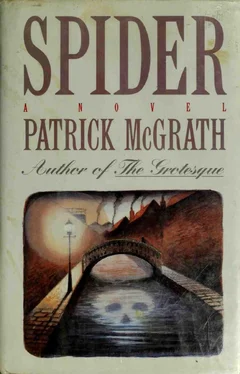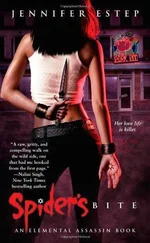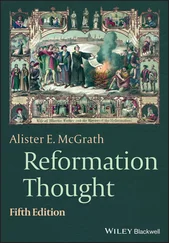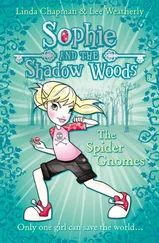Using the alleyways that ran between the backs of the houses they made their way down toward the canal. Hilda was in good spirits. She’d forgotten his first name though. “Horace!” she exclaimed. “Always been one of my favorites. I’d a cat called Horace once.” She talked about the weather. “Nippy, eh?” she said. “I’m glad I’ve got me fur.” What was going through my father’s head? What did he think was going to happen? He glanced at her from the corner of his eye. She was marching along with her shoulders hunched and her hands deep in her pockets. “Lovely job you did on them pipes,” she said. “Barely a squeak out of them now. Smell didn’t go away though.” They talked about plumbing for some minutes. Hilda knew very little about it, and appeared impressed by my father’s obvious mastery of the trade. She was a jovial woman, and soon had him silently chuckling. Most people, he remarked, were bored stiff by plumbing. “I don’t believe it!” she cried. “Well, not me, Horace. I love plumbing.”
They had reached the bridge over the gasworks canal. She led him to a set of slimy stone steps that gave onto a narrow quay just above water level. “Come on, then, Horace,” she murmured, gingerly descending, “down we go.” They were now effectively hidden from the view of any passerby. Hilda opened her coat, unbuttoned her cardigan and showed him her breasts. Then she slid an arm round his waist and with her other hand rubbed his trousered groin, grinning at him as she did so. “How do you like that, Horace?” she whispered. She was exactly the same height as him in her heels, but probably a little heavier, and to feel the big swelling weight of her pressed against him almost overwhelmed the man. He slipped his hands inside the fur coat and hesitantly touched her breasts, then tried to kiss her on the mouth, but she turned her face aside. His penis was stiff in his trousers; Hilda continued whispering to him as she rubbed it with the inside of her palm, then deftly undid the lower buttons of his fly and pulled it out. “What’s this then?” she murmured. It was an unusually thin penis, my father’s, but stiff as a pencil, and twitching. Hilda spat on her hands. “Ooh, Horace,” she whispered. She brought him to climax in half a dozen quick strokes, then shifted aside as he spurted into the canal. She stepped away from him then, tucked her breasts back into her cardigan, and closed her coat with a shiver. My father was standing at the edge of the quay with his back to her, urinating into the canal. He could see his sperm drifting away through the black water, filmy strings of the stuff, grayish and translucent. “Hurry up then, Horace,” said Hilda, her teeth chattering, “I’m bloody freezing.” But my father wanted to be alone; he told her he was going to stay out and have a smoke. “Suit yourself,” she said cheerfully, “I’m off back up the Dog.”
When my father reached the top of the steps a few moments later Hilda was marching up the street. Frowning, he leaned against the railing and groped for his tobacco. He watched the fur-coated figure pass under one streetlamp after another, trailing clouds of smoky breath behind her as the tap tap tapping of her heels on the pavement grew fainter and fainter, and when it had vanished altogether he was still standing on the bridge in the cold night air.
There was a time when we were happy. My mother was so quiet, so patient; even when my father began spending all his spare time on his allotment or in the Dog she never became shrill or bitter, she never turned into a shrew, as most of the women on Kitchener Street did; her sweetness of temper persisted against all odds. Sometimes we would sit together in the kitchen, she and I, in the evening, and we’d play games of the imagination. There was a large stain on the kitchen ceiling, and the game was to make up a story about it. Mine were always horrible—I’d see a twisted dwarf up there, and describe to my mother in lurid detail the evil done by this creature at dead of night when good people were asleep. My mother, her knitting in her lap and her needles peacefully clacking, would shiver at the things I said. “Spider, what an idea!” she would murmur. “However did you think of such a thing!” When it was her turn she would set down her needles and tell me that the stain on the ceiling was a haystack, or a cottage, or a loaded wagon—she’d grown up in Essex, and had never lost her feeling for the countryside. And as she talked, and the tapping of her needles resumed, a restful, rather dreamy expression softened her features, and the dark terrors of my own tale would be dispelled, replaced by a mood of lyric tenderness, by pictures of fields and farms, birdsong in summertime, fresh cobwebs glistening in the elms at sunrise. She used to tell me about the spiders, about how they did their weaving in the quiet of the night, and how, early in the morning, she’d cross the field and see the webs they’d woven draped in the branches like clouds of fine muslin, though as she got closer they’d turn into shining wheels, each with a spider motionless at the center. But it wasn’t the webs she’d come to see, she said, for hidden in the lower boughs, if you knew where to look, you’d find a little silk bag the size of a pigeon’s egg hanging from a twig by a thread. Inside the bag, she’d say, was a tiny ball of orange beads all glued together and no bigger than a pea—and those were the spider’s eggs. She’d been busy all night, spinning from her own insides the silk she’d need to weave the egg-bag and the coats it wore to keep it warm and dry. And look, Spider, see how perfect her work is! Not a thread out of place! Then in my mind’s eye I’d see the little egg-bag dangling on its thread, and yes, it was a perfect thing, a tiny bulb of compact white satin with black silk and brown laid across it in broad ribbons, in spindle-shaped patterns, in elaborate wavy lines. I imagined cutting it open and finding inside a thick quilt of wadding, and under that the fine silk pocket in which lay the tiny eggs themselves. But it was the ending of the story that I loved best: What happened to the spider, I’d say. My mother would sigh. When she’s finished (she said) she just crawls off to her hole without a backward glance. For her work is done, she has no silk left, she’s all dried up and empty. She just crawls away and dies. The knitting resumed. “Put the kettle on, Spider,” she’d say, “and we’ll have a nice cup of tea.”
I’d be in bed by the time my father came home. Sometimes I heard nothing; I knew then he was sullen and silent, unresponsive to her talk and her concern. Soon I’d hear him come heavily up the stairs, leaving her to see to the lights and the doors. At other times he came home angry, and then I’d hear his voice raised, the sharp bite of his sarcasm, the quiet tones of my mother as she tried to soften his temper and blunt the spike of his drink-quickened grievance against the world and her. Often he reduced her to tears, he abused her with such fierce spite, and once, I remember, she came hurrying out of the kitchen, along the passage and up the stairs into my room, where she sank onto the edge of my bed, clutched my hand and sobbed into a handkerchief for several moments before bringing herself under control. “I’m sorry, Spider,” she whispered. “Sometimes your father upsets me so. It’s my fault—you go to sleep, it’s all right, I’m fine now.” And she leaned over to kiss me on the forehead, and I felt the dampness of the tears on her face. Oh, I hated him then! Then I would have killed him, were it in my power— he had a squalid nature, that man, he was dead inside, stinking and rotten and dead.
Iwas feeling better, much better, by the time I closed the book and pushed it back under the linoleum. I think it comes of talking about my mother, or at least talking about the hours I spent with her alone. It was different when my father was present; then there was tension, and ugly silences, and neither of us could properly be ourselves. I pushed back my chair and rose to my feet and stretched. I really did feel remarkably well. I leaned on my hands on the table and gazed out of the window. The rain had stopped, though droplets still clung to the bare branches of the trees in the park, glinting in the light of the streetlamp then dripping onto the dead leaves below. A figure with an umbrella went hurrying along the pavement, and somewhere a dog began to bark. The moon was a slender crescent of yellow light, and I imagined that light rippling on the dark swells of the river a mile or so to the south. I knew I would sleep well tonight, and there would be no more of this business about gas. I think it’s the house that’s to blame—I am a sensitive individual, highly strung, and Mrs. Wilkinson’s establishment is not suitable for such as I. Tomorrow or the next day I would hand in my notice and find more sympathetic accommodations. I might even move away from the East End altogether—the memories it arouses are so relentless, somehow, and so grim, for the most part, perhaps if I was away from here I could think about the past with more detachment?
Читать дальше












